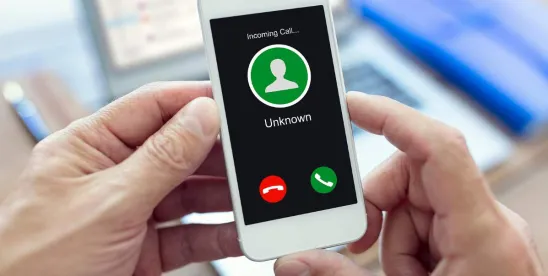The TCPA landscape is being reshaped in real time and we’re here to bear witness. With the Supreme Court’s decision in McLaughlin Chiropractic Assocs. v. McKesson Corp., No. 23-1226, 2025 U.S. LEXIS 2385 (June 20, 2025), the Court has dealt a fatal blow to Hobbs Act deference in TCPA litigation. We at TCPAWorld have been covering the impact of this decision from day one, but in case you missed it, here’s the headline: district courts are no longer bound to follow FCC interpretations of the TCPA.
Instead, courts must independently determine the law’s meaning under ordinary principles of statutory interpretation. In essence, all bets are off – questions once thought settled are ripe for reconsideration. And forefront amongst these questions is this one – are cell phone users “residential telephone subscribers” for the purposes of the TCPA? Well … maybe.
As a quick refresher, Section 227(c) of the TCPA seeks to protect residential telephone subscribers from unwanted telephone solicitations. § 227(c)(1) (emphasis added). In Section 227(c)(2), Congress directed the FCC to promulgate regulations “to implement methods and procedures for protecting the privacy rights” of residential telephone subscribers. § 227(c)(3).
The relevant FCC regulation, 47 C.F.R. § 64.1200(c), provides: “No person or entity shall initiate any telephone solicitation to: … (2) A residential telephone subscriber who has registered his or her telephone number on the national do-not-call registry. . .” (“DNC”). § 64.1200(c) (emphasis added).
But the TCPA does not define “residential.” And, unlike with Section 227(b) – which prohibits making a call using regulated technologies to several categories of phones, including “any telephone number assigned to a … cellular telephone service” – Congress was silent as to whether Section 227(c)’s protections extended to cell phones.
Through 47 C.F.R. § 64.1200(e), the FCC clarified that the rules set forth in § 64.1200(c) apply to wireless telephone numbers “to the extent described in the [FCC’s] Report and Order, CG Docket No. 02–278, FCC 03–153, ‘Rules and Regulations Implementing the Telephone Consumer Protection Act of 1991’” (the “2003 Report and Order”). § 64.1200(e). In the 2003 Report and Order, the FCC not only determined that a wireless subscriber may register their number on the National DNC “to benefit from the full range of TCPA protections”, but also created a presumption that wireless numbers on the DNC are “residential subscribers.” 2003 Report and Order at ¶ 36.
For two decades then, and despite some creative arguments to the contrary, the law has been settled – cell phone numbers are residential for the purposes of the DNC rules. Under Section 227(c), courts generally allowed a claim to proceed if the plaintiff merely alleged that his or her cell phone number is used for residential purposes and is registered on the DNC Registry. See e.g., Barton v. Temescal Wellness, LLC, 525 F. Supp. 3d 195, 201–02 (D. Mass.), adhered to on denial of reconsideration, 541 F. Supp. 3d 138 (D. Mass. 2021) (holding that the 2003 Report and Order established “a more lenient pleading standard for residential subscriber at the motion to dismiss stage”)
But McLaughlin pulls the rug out from under this theory. While the Supreme Court case itself involved a declaratory ruling – and not a C.F.R. provision – the broad language does not preclude its application across the board. If an FCC regulation interpreting the TCPA is not grounded in the statute’s text, a district court may be free to disregard it. That includes 47 C.F.R. § 64.1200(e) and the FCC’s 2003 interpretation that wireless subscribers on the DNC registry are presumptively “residential.”
The implications are staggering. Courts are no longer constrained to accept the FCC’s conclusion that wireless numbers on the registry are residential subscribers. Instead, they can ask what Congress actually meant by “residential” and examine whether that term should apply to mobile phones at all. But does this necessarily mean that a court will come to a different conclusion? Probably not.
While the McLaughlin decision is barely a week old, we do have some data points from a post Chevron-deference landscape that could indicate the paths courts may take.
In Cacho v. McCarthy & Kelly, LLP, the Southern District of New York was amongst the first to address whether a cellphone qualified as a “residential telephone subscriber” under Section 227(c). In Cacho, the defendant argued that the “absence of any reference to cellular telephones in Section 227(c),” despite explicitly referencing them in Section 227(b), was evidence of “Congress’ intent to exclude cell phone users from the definition of ‘residential subscribers.’” 739 F. Supp. 3d at 203. However, the court disagreed, noting that section 227(b) “forbids the use of artificial and prerecorded messages to enumerated categories of phone technologies,” which includes “cellular telephone[s].” Id. at 204 (emphasis added). In contrast, Section 227(c), uses the term “residential subscriber” not in reference to particular category of technology, but to the “the type or identity of the subscriber to the technology.” Id. at 205 (emphasis added). According to the court, the omission of “line” in Section 227(c) underscores that the statute protects individuals based on their use of the phone for personal, domestic purposes, irrespective of whether it is a landline or cellphone. Id. Construing “residential subscriber” functionally, the court concluded that the term includes any individual using their phone for household purposes, aligning with the TCPA’s goal of safeguarding privacy. Id. at 206-207.
However, Cacho also indicates that this determination may require more than a mere presumption afforded by a user placing their number on the National DNC Registry. Instead, the court took into consideration a multitude of facts pleaded in the complaint to conclude that the plaintiff therein was a residential telephone subscriber:
“That cellphone is ‘Plaintiff’s personal phone that he uses for personal, family, and household use.’ Indeed, Plaintiff ‘maintains no landline phones at his residence and has not done so for at least 15 years and primarily relies on cellular phones to communicate with friends and family.’ The Complaint enumerates the domestic tasks that he performs with his phone, including ‘sending and receiving emails, timing food when cooking, and sending and receiving text messages,’ and avers that ‘the phone is not primarily used for any business purpose.’ Collectively, these allegations exceed ‘conclusory’ boilerplate, and adequately plead that Plaintiff used his cellphone for residential purposes, such that he was a residential subscriber for purposes of the TCPA and its implementing regulations.”
Id. (internal citations omitted).
Other courts have echoed this view. In Lyman v. QuinStreet Inc., the court rested its decision on “both binding Ninth Circuit precedent and the applicable regulation.” Lyman, 2024 WL 3406992 at *3. The Ninth Circuit precedent the court was referring to was Chennette v. Porch.com, Inc., which held that cellphones used for “personal and business purposes [are] presumptively residential” under Section 227(c), a conclusion reinforced by FCC regulations extending protection to wireless lines. Id. But the Court noted that it would reach the same conclusion based on the statutory text:
“Finally, the Court accords due respect to the FCC’s interpretation under pre-Chevron principles. As the Court has done here, the Court needs only ‘independently identify and respect such delegation of authority, police the outer statutory boundaries of [that delegation], and ensure that [the agency exercises its] discretion consistent with the APA.’ Here, Congress has expressly conferred discretionary authority on the agency to flesh out the TCPA. Using its discretion within the boundaries of its delegation, the agency has created a presumption that a cell phone registered on the Do Not Call Registry is a residential phone, a presumption that has lasted for more than two decades. The FCC’s interpretation ‘rests on factual premises within the agency’s expertise,’ thus giving its interpretation ‘particular power to persuade, if lacking power to control.’ In this context, it is especially informative and particularly persuasive. Id. In any event, however, the Court would reach the same conclusion in the absence of any FCC interpretation of the TCPA’s statutory text.”
Id. at *4 (internal citations omitted).
Similarly, in Lirones v. Leaf Home Water Sols., LLC, No. 5:23-CV-02087, 2024 WL 4198134 (N.D. Ohio Sept. 16, 2024), the court held that “according to the TCPA’s plain language and dictionary definitions of ‘residence’ and ‘subscriber,’ ‘a residential subscriber is one who maintains a phone for residential purposes … i.e., for personal activities associated with his or her private, domestic life.’” Id. at *6. Like in Lyman, while the court found the FCC’s interpretation persuasive, it noted that “based on the text of the statute and tools of statutory interpretation, [it] would reach the same conclusion in the absence of any FCC interpretation of the term ‘residential subscriber.’” Id. at *7.
In Lirones, the court also addressed instances of other district courts dismissing Section 227(c) claims brought by cellular telephone users, noting that in many of these cases the plaintiff did not plead that the cellular telephone number called was used for residential purposes. Id. at *5. See e.g., Cunningham v. Rapid Response Monitoring Servs., Inc., 251 F. Supp. 3d 1187, 1201 (M.D. Tenn. 2017) (dismissing Section 227(c) claim because the plaintiff pled no facts sufficient for the court to conclude that he used his cellular number for residential purposes).
But even before McLaughlin and Loper, district courts have deviated from the FCC’s interpretation. In Gaker v. Q3M Ins. Sols., No. 3:22-CV-00296-RJC-DSC, 2023 WL 2472649 (W.D.N.C. Feb. 8, 2023), the court held that “the FCC’s rulemaking authority under section 227(c) extends only to unwanted telephone solicitations directed at ‘residential telephone subscribers.’” Id. at *3. The court also noted that Congress’s specific reference to ‘cellular telephone service’ in § 227(b) evidenced that it was aware of the distinction between a cellular telephone and a residential telephone and “purposely protected only ‘residential telephone subscribers’ under § 227(c).” Id. Further, in a sharp break from other district courts that have cited heightened privacy invasions as a reason to include cell phone users within “residential telephone subscribers”, the court held “cell phones do not present the same concerns as residential telephones [because] the findings in the TCPA show a concern for privacy within the sanctity of the home [and] cell phones are often taken outside of the home and often have their ringers silenced, presenting less potential for nuisance and home intrusion.” Id.
Similarly, in Cunningham v. Sunshine Consulting Grp., LLC, No. 3:16-cv-2921, 2018 WL 3496538, at *6 (M.D. Tenn. July 20, 2018), the court held that “the language of the TCPA specifically provides that the regulations implemented pursuant to Subsection 227(c) concern only ‘the need to protect residential telephone subscribers’ privacy rights.”
And some courts in the Eleventh Circuit have observed that they would have reached a different conclusion were it not for Hobbs Act deference: in Turizo v. Subway Franchisee Advert. Fund Tr. Ltd., 603 F. Supp. 3d 1334, 1342 (S.D. Fla. 2022), the court characterized the inclusion of cell phone subscribers within Section 227(c) as “an unauthorized expansion of the private right of action for violations of the TCPA’s do-not-call provision”, noting that “when Congress granted the FCC authority to create the DNC Registry via section 227(c)(3), [it] intentionally withheld from the FCC any authority to create a registry that included cellular telephone numbers.”
Welcome to the post-McLaughlin era. The presumptions are gone. The pleading bar is higher. And the definition of “residential telephone subscriber” just got a lot more complicated.




 />i
/>i
